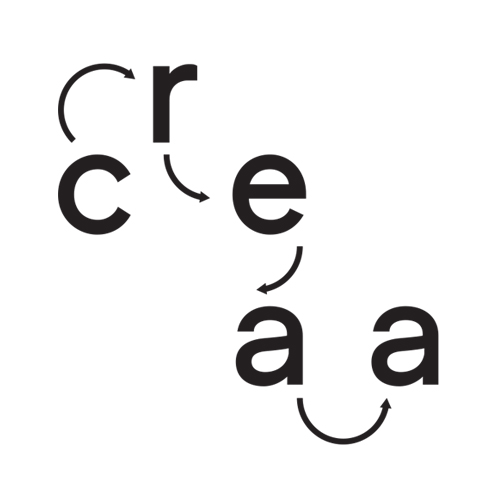Playful approach and games: new ways to foster civic engagement in cities
Edited on
12 May 2021An article written by Ileana Toscano, Urban specialist and Community engagement expert and Lead expert of the Playful Paradigm Transfer Network

In 2018 when Udine promoted the Playful Paradigm Good Practice the cities interested to join the Network expressed the intention that they have been looking for new methods and tools to involve their citizens.
All across Europe, there is a strong need to foster the feeling of belonging and find novel approaches to include people and local communities in the decision-making process. The COVID-19 Pandemic has drastically contributed to people isolation. Elderly people, single parents, adolescents and women felt the oppression of loneliness and the distance from public institutions.
Cities have been looking for engaging methodologies to re-call people to the civic life and re-build the sense of community, in order to be able to take care of the marginalized people and find new methodologies to satisfy citizens’ needs.
The Playful Paradigm Transfer Network has experimented new approaches for triggering citizens’ participation by using PLAY and gaming activities.
Play is a catalyst to foster the participation of families, children, women, young and elderly people. It provides innovative methodologies to involve target groups generally difficult to reach, as adolescents and migrants.
Adapting and Reusing the Good Practice developed by Udine, Esplugues de Llobregat in Spain, Katowice in Poland and Larissa in Greece have been testing novel playful approaches to promote grassroot movements, civic participation and inclusion.
These three cities, also supported by the other cities partner of Playful Paradigm, Cork (Ireland), Klaipeda (Lithuania) Novigrad (Croatia) and Viana do Castelo (Portugal) have promoted a playful environment to ensure participation through play.
“Esplujuga” – the playful movement in Esplugues de Llobregat
“Esplugues de Llobregat, is a medium city located in the metropolitan area of Barcelona. It has 47.000 inhabitants, with a lot of green areas and parks where we could explore new possibilities to boost socialization. In Esplugues, there is a significant income difference between neighbourhoods, some are very popular where working class lives, but other areas are very rich where there are also first-class football players” – said Pilar Diaz, mayor of the city.
The COVID-19 Pandemic has manly affected the working class, in terms of social care and economy capacity in Esplugues as well as all across Europe. The city invested in a re-building plan of 1 Million of Euro trying to stay close to youth, families, self-employers, retailers and citizens in need.
Esplugues is a Child friendly city recognised by UNICEF and it has a long tradition in the use of games for education and social cohesion. Children and adolescents have been engaging through a Forum and a Children City Council.
“Being part of the Playful Paradigm, Esplugues could use games as tool to face the challenges of ageing population, climate change and social inclusion.” - Pilar said - “We wanted to update our city programme incorporating the playful vision, shared with other cities partner, in order to define a new roadmap. The Pandemic has affected this plan and we had to modify the forecasted activities, but we keep walking”.
The Playful approach offers to Esplugues the possibility to animate the local community through play activities and provide a concrete and innovate tool to foster the civic engagement and social cohesion.
The city launched the playful campaign “Esplujuga” (a Catalan word that in English sounds like “Esplugues plays”), together with the city play-branding “play connects us”. It implemented a series of play activities: a play-programme for schools and the Ludobus (the Mobile Toy Library). All of these activities have been co-designed by a participatory process which engaged the ULG and relevant local stakeholders.
Esplugues has been committing in providing blended approaches for games and play activities, in order to ensure the social distance required by the emergency protocol due to COVID-19. Among them, it was launched the “Children rights escape room” to celebrate the human rights of children and youth. A training programme targeted youth were also organised aimed at supporting kids and adolescents in becoming “influencers of games”
Pilar concluded “Esplugues de Llobregat is willing to spread games over the city following the inspiration provided by Udine”.
A participatory crowdsourced experience for Katowice
Katowice experimented blended approaches of civic participation connected with play activities.
“A Crowdfunding system was launched by a “boardgames café” in Katowice, which was closed for a long time due to the COVID-19 Pandemic, and the Municipality decided to support it” – said Michal Kucharski, ULG coordinator for the Municipality of Katowice
The “boardgame café” is a private space in the city where people can play board games while drinking and eating. It promotes also activities connected with local NGOs with purposes of social inclusion.
Michal continued “At the beginning the aim of the crowdfunding was just helping this place surviving, but it was much more than that. It was a project helped also the local society“.
Katowice is a big city with almost 300.000 inhabitants and with the surroundings there are more than 3 Million people living in the area. There is a lack of feeling of being part a society and people suffer isolation. This situation has been drastically increased by the COVID-19 Crisis.
Thanks to this Crowdsourced project, a virtual community of board gamers was founded. A platform was opened where people can discuss about games and share playful activities, which also supported families and parents during the difficult lockdown period.
“The added value of this activity for Katowice was to have the possibility to stay connected to something real we lost during the Pandemic time,” said Michal.
Because people need to be connected to the real world and play offers the opportunity to find a concrete space behind the digital world and the masks people must wear.
A games donation scheme to upscale the Playful Paradigm in Larissa
Larissa experimented another crowdsourced participatory activity through a donation process for setting up a toy-library.
“This Donation scheme came more as a need than an initiative”– said Vasilis Mitsios ULG coordinator.
The Municipality of Larissa has been willing to transfer the Toy Library Module by using some spaces inside the public Library. The city was looking for games, gameboards and toys, but due to the bureaucracy and economic crisis suffered by Greece it was a challenge. “We were looking also for the more suitable games to buy and provide to citizens” said Vasilis “Therefore we tried to change the paradigm and brough back to the market”.
A donation call was opened for games retailers which had a high number of participants. Bookstores, games and toys stores and games café provided the needed games and equipment to launch the pilot Toy Library now situated in Public Library.
The COVID 19 restrictions and the hearth quack problems haven’t allowed the city of Larissa to have a full feedback from the users about this donation scheme, but the first impact was very positive. Indeed, the open call was also a vehicle to promote the Playful Paradigm project itself and engage with local stakeholders.
Through the donation scheme initiative, the city mobilized many people and enlarged the stakeholders involved. It was a successful mechanism also to better connect the playful policy with the other International Networks Larissa is part of: the UNESCO Learning city and the Healthy Cities Network.
The learning experience of Playful Paradigm is that the playful approach and play activities could positively impact on the citizens participation. Play could mobilize people to transform normal streets in play streets, activate creative crowdsourced systems and include marginalised people in a more equal community.
The Playful Paradigm supports the participatory processes by offering playful methods and engaging sessions with a friendly atmosphere, where participants could share their thoughts by having fun.
The playful approach contributes to bring us in the right direction of a more democratic and engaging city life!
Ileana Toscano
Urban specialist and Community engagement expert
Lead expert of the Playful Paradigm Transfer Network
Want to know more about fostering civic engagement?
The Playful Paradigm Network launched a Podcast series and one of the episodes features the key players mentioned in this article. Listen it here!
 Submitted by CREAA on
Submitted by CREAA on
